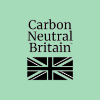Sustainable sourcing
Sustainable sourcing is more than ingredients and packaging; it brings together all of the elements needed to make the world a fairer place to live and work.
The ultimate goal is to build strong, long-term relationships with suppliers. Improving performance in environmental, social and ethical issues is becoming a major part of the overall process. Social responsibility covers many areas and whether an organisation is legally mandated to have a code of conduct or not, every organisation should have one. A code has value as both an internal guideline and an external statement of corporate values and commitments.
These commitments are a good starting point to ensure that everyone in the supply chain is treated fairly and may include things like real living wages, participation in Fair Trade, no discrimination rules, regular employment is provided among others. Finding out if the company you buy from has these in place will tell you a lot about the way a company is run and whether they place as much value on people and the planet as they do on profit.
So how do you know?
As a first step, you could ask the organisation or simply search ‘does [insert company name] have an ethical code of conduct?’ on the internet.
Look for 3rd party verification such as BCorp, UEBT and Cradle to Cradle. These are multi attribute certifications which promote the highest social and environmental responsibility through their scoring system.
THINGS TO LOOK OUT FOR

Carbon Footprint
Carbon Footprint
A carbon assessment evaluates the direct and indirect greenhouse gas emissions that contribute to global warming.
A company’s carbon footprint represents the amount of carbon dioxide or other carbon compounds emitted into the atmosphere by the activities of the company in question. It is a key element in helping companies reduce their emissions. The lower a company’s carbon footprint the better!
It is important that companies set ambitious goals, and even better ‘science-based targets’ to ensure their goals are measurable, verifiable and in line with what the latest climate science says is necessary to meet the goals of the Paris Agreement – to limit global warming to well-below 2°C above pre-industrial levels and pursue efforts to limit warming to 1.5°C.

BCorp
BCorp
Companies who are BCorp certified are legally bound to consider environmental and social stakeholders in their decision-making. You can be assured that BCorp certified companies are committed to having a positive purpose at the core of their company. You can support these types of companies by choosing a BCorp brand.

Cradle to Cradle
Cradle to Cradle
Cradle to Cradle Certified® is the global standard for products that are circular and responsibly made.
They assess the safety, circularity and responsibility of materials and products across five categories of sustainability performance, material health, product circularity, clean air & protection, water & soil stewardship and social fairness.
Look out for this seal of approval to help make your buying choices easier.

Carbon Neutral
Carbon Neutral
When the amount of greenhouse gases emitted into the atmosphere by a brand and/or a product are exactly ‘balanced’ by the amount of greenhouse gases it sequesters from the atmosphere (via greenhouse gas removals and / or credible carbon offsetting projects).
Being ‘Carbon Neutral’ has become a buzzword in sustainability claims – so much so that messaging claiming a brand is carbon neutral using offsets are to be banned by the UK’s advertising watchdog unless companies can prove they really work. And, the EU will ban sweeping environmental claims such as “climate neutral” by 2026 unless companies can prove the claim is accurate.
In the meantime, look at the transparency of any claims made including Carbon Footprint disclosure and any carbon offsetting projects brands have supported. There are a number of third-party certifications available such as the CarbonNeutral® certification.

Biodiversity
Biodiversity
All the different kinds of life you’ll find in one area—the variety of animals, plants, fungi, and even microorganisms like bacteria that make up our natural world and work together in ecosystems, to maintain balance and support life. Biodiversity supports everything in nature that we need to survive such as food, clean water, medicine, and shelter. Look out for companies who actively support and create biodiversity through their business practises.

Regenerative Farming Practices
Regenerative Farming Practices
Regenerative farming practises (such as biodynamic farming) seek to improve soil fertility, water quality or biodiversity and with the aim to reduce the carbon footprint of farming. It is important that companies work to support the regeneration of soil as opposed to exploitation in their product creation. Without healthy land, nothing grows – including many of the ingredients used in our favourite beauty products.
Transparent
Transparent
Transparency is about being honest and open with shoppers about how businesses source products and the impact they have on people and the planet. This is important as it’s easy for brands to hide the damage they are doing to the planet. Look to see if a brand is transparent about their suppliers, labour practices, ingredients and packaging to understand its impact on the planet. You can usually find this information on a brand’s website- or if it’s not clear, look to their social channels or simply ask the question – you have a right to know.
Net Zero
Net Zero
Technically this means the same as Carbon Neutral, however this is increasingly being used to describe a much more ambitious and rigorous goal. A company can achieve Net Zero status by taking all action possible to decarbonise its impacts and ‘balance’ only the emissions that are unfeasible to avoid or reduce by investing in carbon offsetting projects such as Earthly.

UEBT
UEBT
The Union for Ethical Bio Trade is a non-profit organisation that provides a globally recognised standard for sustainable sourcing and the use of raw materials. In order for a brand to be certified, the UEBT looks at its entire sourcing system to verify that biodiversity is conserved, ingredients are sourced sustainably, and that all partners along the supply chain are treated equitably and paid fairly. Look out for the ‘Sourcing with Respect’ on pack.

Circular Economy
Circular Economy
In our current economy, we take materials from the Earth, make products from them, and eventually throw them away as waste – the process is linear. In a circular economy, by contrast, we stop waste being produced in the first place.
The circular economy is based on three principles, driven by design to eliminate waste and pollution, circulate products and materials, and regenerate nature.
It is underpinned by a transition to renewable energy and materials. A circular economy decouples economic activity from the consumption of finite resources. It is a resilient system that is good for business, people and the environment.

Soil Health
Soil Health
It is underpinned by a transition to renewable energy and materials. A circular economy decouples economic activity from the consumption of finite resources. It is a resilient system that is good for business, people and the environment.

Renewable Energy
Renewable Energy
Renewable sources are defined as those that naturally replenish within a human lifetime (e.g. biomass, wind or solar power).

The Butterfly Mark
The Butterfly Mark
Since 2011, ‘Positive Luxury’ accelerates brands to a new climate economy. Their platform helps companies manage their climate impact with highest degrees of trust, transparency, and ease. This focused approach enables companies and suppliers alike to understand to credibly communicate and foster consumer trust. Positive Luxury have created the accreditation of The Butterfly Mark, the luxury industry’s leading independent sustainability certification, enabling consumers to find brands that truly align with their values.
In regards to the mark there are several versions – you can download what works best from the media centre on the Positive Luxury website.
